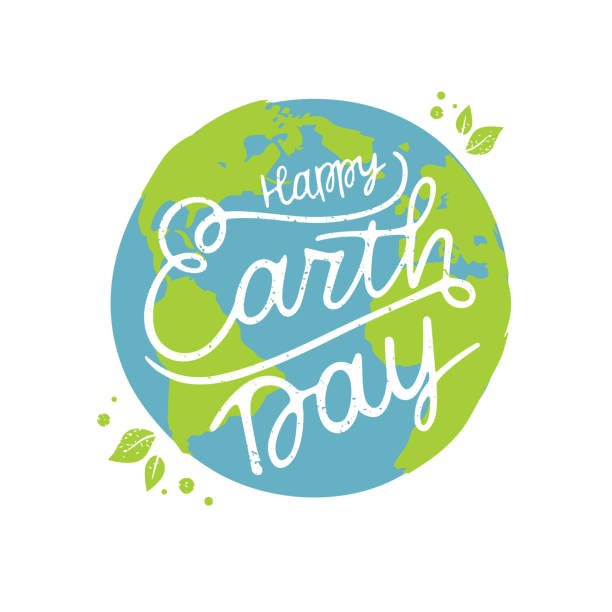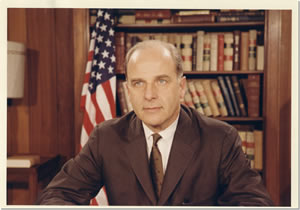
Earth Day: Why is it Important?
By: Harry French
As many of you may already know, on April 22nd we will be celebrating Earth Day. However, some of you might be wondering how we came to celebrate it? The easiest place to start is at the beginning, or rather, a little before the beginning technically. The first Earth Day was 51 years ago on April 22nd, 1970, but we need to look back a little further to understand how Earth Day started. For those of you who have read our article on Women’s History Month this is going to sound pretty familiar. The idea of an Earth Day really started to get traction when Rachel Carson released her book Silent Spring in 1962 (WomensHistory). The release of Silent Spring is considered to be one of defining moments in the public perception of the environment. Suddenly American’s became conscious of the impact of their rampant pollution on the environment and public health. Now, just around 1970 Senator Gaylord Nelson of  Wisconsin, who had been concerned about the environment for some time, and after witnessing an oil spill in Santa Barbara decided to do something about it. Seeing the passion of students in anti-war protests, Nelson decided to organize environmental “teach-ins” on college campuses across the nation. After recruiting a young activist by the name Daniel Hayes and a conservative republican congressman Pete McCloskey, the three laid the foundations for these teach-ins to take place on April 22nd, 1970. Hayes reached out to representatives across multiple campuses and various groups to spread the word. And with the renaming of the event to Earth Day, much of the general public became interested (EarthDay). And on the first Earth Day, 20 million Americans, 10% of the country took part in the celebration to raise awareness for environmental issues (IndiaTV).
Wisconsin, who had been concerned about the environment for some time, and after witnessing an oil spill in Santa Barbara decided to do something about it. Seeing the passion of students in anti-war protests, Nelson decided to organize environmental “teach-ins” on college campuses across the nation. After recruiting a young activist by the name Daniel Hayes and a conservative republican congressman Pete McCloskey, the three laid the foundations for these teach-ins to take place on April 22nd, 1970. Hayes reached out to representatives across multiple campuses and various groups to spread the word. And with the renaming of the event to Earth Day, much of the general public became interested (EarthDay). And on the first Earth Day, 20 million Americans, 10% of the country took part in the celebration to raise awareness for environmental issues (IndiaTV).
The impact of the first Earth Day was immediate, with the Environmental Protection Agency (EPA) being founded just a few months later on December 2nd, 1970 (EPA). As well as with the passing of multiple laws to help improve environmental protection in the years following. These laws included the Clean Air Act of 1970 and the Clean Water Act of 1972, just to name a few (EPA). The public had become galvanized to protect the environment and the years following the first Earth Day would be some of the most productive years of this Green Revolution. At present, Earth Day is established as a yearly celebration, but most importantly to raise environmental awareness for the issues we are still facing today. That is by far the most important reason for there to be an Earth Day, to keep public awareness up and to not let these environmental issues slip out of the public eye. I had mentioned historic acts that had been passed because of Earth Day nearly 50 years ago, but even recently new agreements had been associated with Earth Day. The Paris Climate Agreement (check out our article about this) was signed in the UN on Earth Day in 2016, by 174 counties and the EU (UNFCCC). Yes, environmental issues are generally so large that they need to be handled by governments, but don’t let that dissuade you from taking action. Governments may have the resources to deal with these issues, but at the end of the day action was taken by the governments due to the people. The public outcry and support for environmental protection is what caused the creation of all these laws, agencies, agreements, etc. The millions of Americans who celebrated Earth Day in 1970 had been the spark for serious government action to protect our planet.
Sadly, due to the current state of the world with the Covid-19 epidemic, it is not likely that you all will be able to attend mass gatherings to celebrate the environment or Earth Day this year. This, however, is not the only way you can celebrate. There will be virtual events held (Find them here!) from April 20th-April 22nd. These summits will feature speakers from youth climate movements across the globe as well as panels and speeches from various groups. Besides sitting in on virtual meetings, which many of us may be tired of by now, there are additional ways to make an impact. Trying to live more sustainably is always a good bet to help work towards a better world. Every contribution made by an individual is a contribution to the effort of the world as a whole. Use a reusable water bottle instead of plastic bottles, take public transportation instead of driving when possible, or even something as small as turning off the lights when they aren’t needed. All of these are ways you can start to live more sustainably. When it comes to protecting the environment every little bit helps, and spreading the word to others may be one of the biggest impacts you can make. Because, at it’s core, Earth Day is meant to raise awareness for environmental issues.
For this years’ University of Maine Earth week event calendar follow this link!
